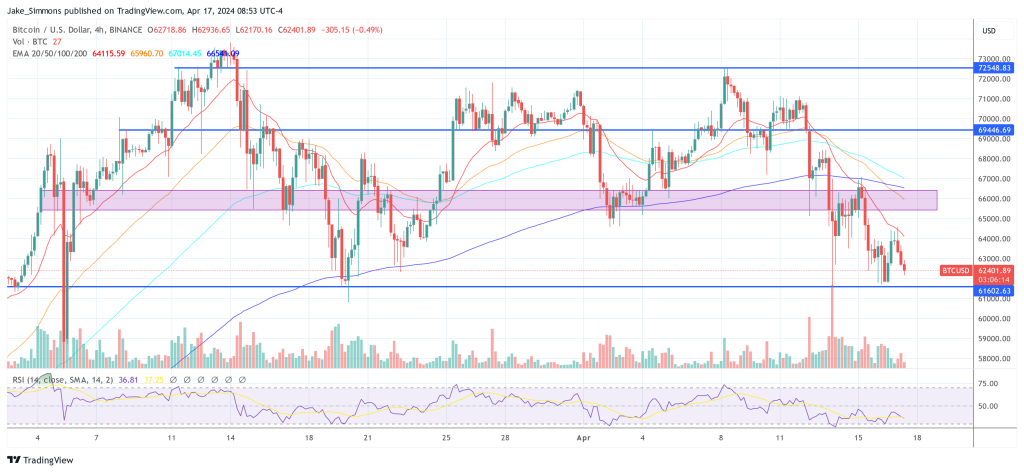Hong Kong is positioned to take the lead with its recently introduced spot Bitcoin and Ether Exchange Traded Funds (ETFs). However, how will they compare to their US counterparts, which have amassed over $28 billion in assets in the first quarter? Bloomberg ETF analyst Eric Balchunas has revised his estimates, now suggesting that these ETFs could garner up to $1 billion in assets under management within their initial two years of operation, doubling his earlier projection of $500 million.
Why Hong Kong’s Spot Bitcoin ETFs Might Trail Behind US Counterparts
Despite the positive outlook, regulatory hurdles, especially concerning potential investors from Mainland China, could dampen prospects. As outlined by Balchunas on X (formerly Twitter), “Mainland China investors are likely ineligible to purchase Hong Kong-listed spot Bitcoin and Ether ETFs due to restrictions on virtual asset purchases.”
This analysis stems from insights provided by Rebecca Sin of Bloomberg, highlighting the challenges faced by investors from Mainland China in accessing these ETFs. Sin underscores that while retail investors theoretically have the option to utilize their $50,000 annual remittance quota for ETF investments, this avenue remains largely untapped due to regulatory and logistical complexities. Institutional investors face even stricter constraints, with little possibility of the Qualified Domestic Institutional Investor (QDII) quota being allocated for virtual asset ETFs given the prevailing regulatory climate.
However, despite these obstacles, the introduction of spot Bitcoin and Ether ETFs marks a significant milestone for Hong Kong’s financial landscape. Sin elaborates on the broader implications, suggesting that “Hong Kong’s spot Bitcoin and Ether ETFs could amass up to $1 billion in assets under management.” Nonetheless, achieving this target hinges heavily on infrastructure enhancements and the growth of the ecosystem supporting these digital assets.
As of now, total assets under management for Bitcoin ETFs in the Asia-Pacific region stand at $250 million, distributed among five funds based in Hong Kong and Australia. Notably, CSOP’s Bitcoin Futures ETF (3066 HK) leads the pack as Hong Kong’s largest Bitcoin fund, launched in late 2022 with $121 million in AUM.
The management fees for the newly introduced ETFs are expected to fall within the range of 1-2%. In comparison, CSOP’s existing Bitcoin Futures ETF and Ether Futures ETF impose a 2% management fee alongside an estimated additional 2% for other expenses. Conversely, Samsung’s Bitcoin Futures ETF offers a more competitive fee structure at 0.95%. The fee arrangement stands as a pivotal consideration for potential investors, impacting the participation of both retail and institutional investors in these financial instruments.
Eric Balchunas also underscored the broader implications for Hong Kong’s standing in the global ETF market. “Now for some positive news regarding HK, our asset estimate for the first two years is $1 billion (which is substantial in my opinion but still falls short of the $25 billion that some have projected), but much depends on infrastructure enhancements. We also believe this positions HK as a leader in the Asian region’s ETF market,” he tweeted.
This viewpoint highlights Hong Kong’s strategic stance as an emerging center for cryptocurrency investments in Asia, notwithstanding the stringent regulations in neighboring markets such as Mainland China. With trading scheduled to begin on April 30, the financial community is closely monitoring Hong Kong’s ETF launches.
At the time of reporting, BTC was trading at $62,401.
 BTC price, 4-hour chart | Source: BTCUSD on TradingView.com
BTC price, 4-hour chart | Source: BTCUSD on TradingView.com

